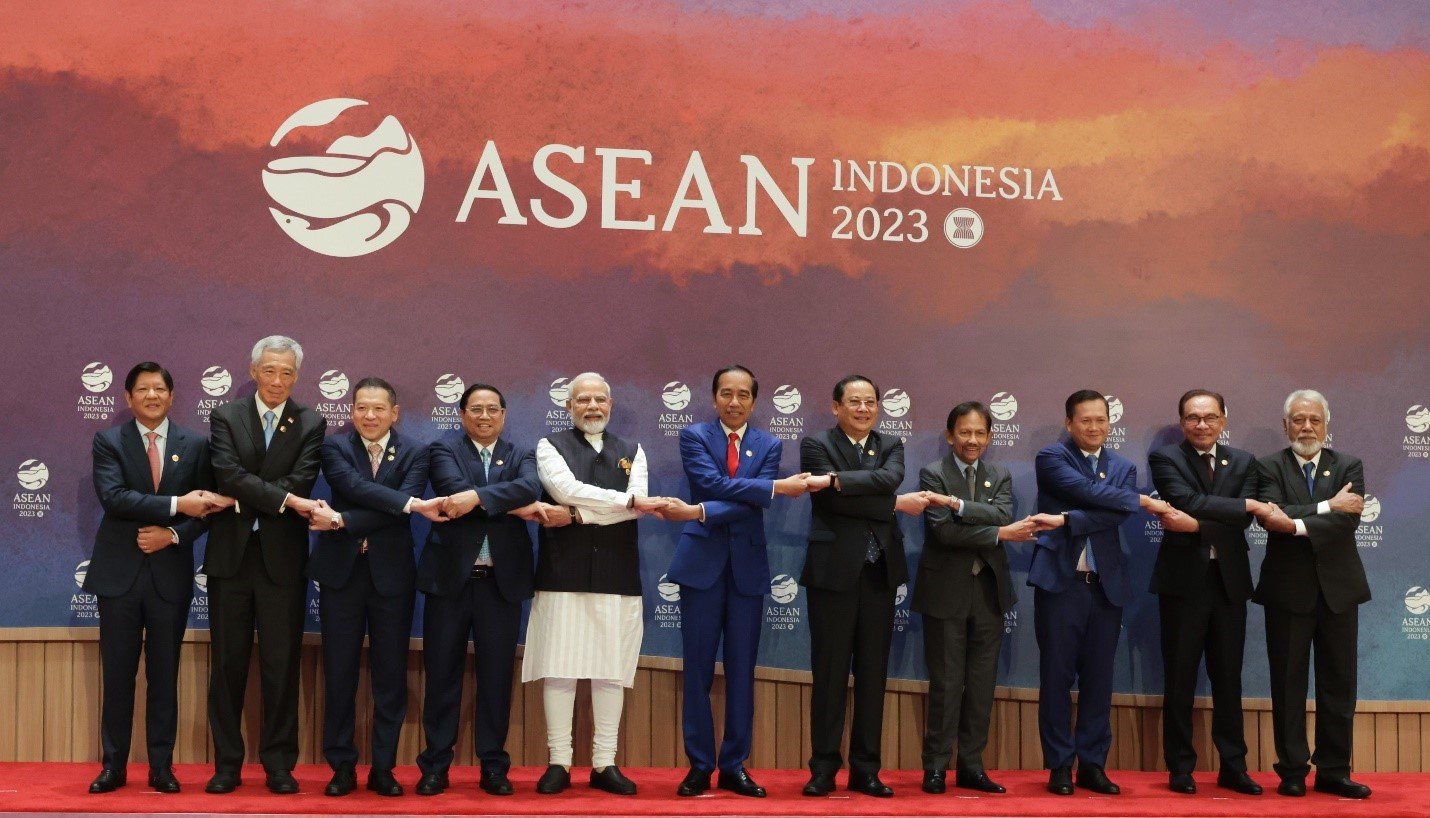Leaders attending the East Asia Summit on Thursday vowed to promote the region as an “epicentrum of growth” as they agreed to strengthen cooperation to ensure that the strategic region remains competitive, inclusive, forward-looking, resilient, adaptive, and responsive to future regional and global challenges.
A leaders’ statement issued at the end of the 18th East Asia Summit, which was attended by Prime Minister Narendra Modi in Jakarta, reaffirmed member states’ commitment to create a peaceful environment for further enhancing cooperation and strengthening the existing bonds of friendship among them.
The seven-page statement titled Maintaining and Promoting the Region as an Epicentrum of Growth’ reaffirmed the common interest to maintain, promote, and sustain peace, stability, and prosperity in the region, including through the peaceful settlement of disputes in accordance with international law.
The leaders called for recognising the opportunities and challenges presented by the rapidly changing global and regional geopolitical and geo-economic landscapes, including the advancement in technology and the Fourth Industrial Revolution, the statement said.
The member states reaffirmed their commitment to creating a peaceful environment for further enhancing cooperation and strengthening the existing bonds of friendship among our countries and for our peoples in keeping with the principles of equality, partnership, consultation, and mutual respect to continue to promote peace, security, stability, and prosperity in the region, the statement said.
The East Asia Summit leaders reaffirmed their commitment to promote an enabling environment for peace, stability, good governance, prosperity, and sustainable development for all through ensuring a culture of dialogue and cooperation, enhancing mutual trust and confidence, and respect for international law, it added.
They agreed to promote multilateralism based on international law, particularly the principles of the Charter of the United Nations, including strengthening the regional multilateral architecture to tackle pressing common regional and global issues and challenges.
The leaders reaffirmed their commitment to maintain and promote the region as an “epicentrum of growth” by building resilience against emerging challenges and future shocks through cooperation on enhancing energy security and food security, maintaining financial stability, and strengthening regional health architecture.
They decided to strengthen cooperation and partnership to ensure that the region remains relevant, competitive, inclusive, forward-looking, resilient, adaptive, and responsive to future regional and global challenges, the statement said.
The leaders also decided to strengthen economic resilience, including through enhancing regional economic integration, facilitating trade and investment, addressing socio-economic inequalities, and accelerating inclusive digital transformation by, among others, facilitating cross-border flows of data while protecting personal information and strengthening consumer and business trust in the digital economy.
They agreed to enhance cooperation on climate change, including through strengthening collaboration for the full and effective implementation of the United Nations Framework Convention on Climate Change (UNFCCC) and the Paris Agreement, strengthening regional and global supply chain connectivity to make supply chains more resilient, sustainable and secure.
They reaffirmed their commitment to democratic values, good governance, the rule of law, human rights and fundamental freedoms.
They decided to strengthen the rules-based, non-discriminatory, free, fair, open, inclusive, equitable, sustainable, and transparent multilateral trading system (MTS), with the World Trade Organization (WTO) at its core.
The leaders expressed their commitment to advance regional maritime cooperation through ASEAN-led mechanisms by, among others, promoting the sustainable use and management of marine resources and the protection and conservation of the marine environment, biodiversity, and ecosystems.
They agreed to promote peace, stability, maritime safety and security, freedom of navigation and overflight, other internationally lawful uses of the seas and unimpeded lawful maritime commerce, the exercise of self-restraint, the non-use of force or the threat to use force against another state consistent with the UN Charter, mutual trust and confidence, as well as peaceful resolution of disputes, in accordance with universally recognised principles of international law, including the 1982 UNCLOS.
The reference is significant in the backdrop of China’s increasing military assertiveness in the South China Sea and its ongoing dispute with the Philippines.
The EAS leaders agreed to cooperate to counter terrorism and transnational crime to address current and future threats comprehensively, including through enhancing the capacity to respond to such threats and using new and evolving technologies to enhance this effort.
The East Asia Summit is the premier forum in the Asia-Pacific region to deal with issues relating to security and defence. Since its inception in 2005, it has played a significant role in the strategic, geopolitical and economic evolution of East Asia.
Apart from the ASEAN member states, the East Asia Summit includes India, China, Japan, the Republic of Korea, Australia, New Zealand, the United States and Russia.


